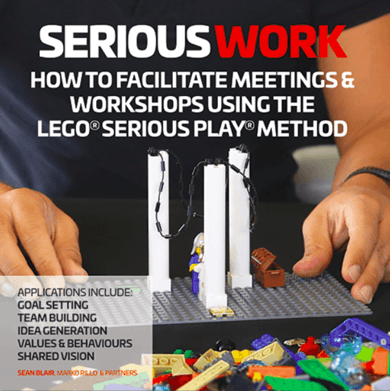Simple Guiding Principles
- This topic has 6 replies, 2 voices, and was last updated 6 years, 7 months ago by
Gonzalo Sirgo.
-
AuthorPosts
-
November 24, 2018 at 3:00 pm #12388
Gonzalo Sirgo
ParticipantHello everyone, I have been working with the LSP methodology for a year. Until now I had not held strategy workshops. On the other hand, when I study cases of other professionals I see that everyone talks about the SGPs, but nobody specifies the methodology that they use. I mean, when the system has been created, how do you work on what happened in the past, and what will happen in the future, and how does it relate to the SGPs? For example, if in a system economic resources are important, and we play for them to disappear in the future, what is the relationship between this situation and the SGPs? It may seem a very simple question but I would appreciate your help. Not to obtain a workshop model, but to clarify the concepts and be able to develop by myself the approach of future workshops.
Thank a lot,
Gonzalo Sirgo
November 24, 2018 at 3:51 pm #12389 Eli De FriendMember
Eli De FriendMemberHi Gonzalo,
Originally, LSP was a strategy development tool and Simple Guiding Principles (SGPs) were some of if not THE core outputs of the process.
Uncovering and building SGPs used to be part of the standard facilitator training. In 4 days we covered everything. But in those days, the assumption was that the participants were already experienced management consultants. Perhaps your trainer covered the material, but the material didn’t mean that much to you as a physician, or perhaps your LSP trainer has split the full course into multiple modules or levels and you have to complete all of the training modules for you to become a facilitator of workshops using the LSP methodology. You might want to address this question directly to your trainer or perhaps to Robert Rasmussen and Per Kristiansen, who together represent the original LSP as described in the Open Source document.
I do not dare give a more precise answer, because I know that training practices have evolved over the last 10 years.
Kind regards,
Eli
November 24, 2018 at 3:51 pm #12390 Eli De FriendMember
Eli De FriendMemberHi Gonzalo,
Originally, LSP was a strategy development tool and Simple Guiding Principles (SGPs) were some of if not THE core outputs of the process.
Uncovering and building SGPs used to be part of the standard facilitator training. In 4 days we covered everything. But in those days, the assumption was that the participants were already experienced management consultants. Perhaps your trainer covered the material, but the material didn’t mean that much to you as a physician, or perhaps your LSP trainer has split the full course into multiple modules or levels and you have to complete all of the training modules for you to become a facilitator of workshops using the LSP methodology. You might want to address this question directly to your trainer or perhaps to Robert Rasmussen and Per Kristiansen, who together represent the original LSP as described in the Open Source document.
I do not dare give a more precise answer, because I know that training practices have evolved over the last 10 years.
Kind regards,
Eli
November 24, 2018 at 3:51 pm #12391 Eli De FriendMember
Eli De FriendMemberHi Gonzalo,
Originally, LSP was a strategy development tool and Simple Guiding Principles (SGPs) were some of if not THE core outputs of the process.
Uncovering and building SGPs used to be part of the standard facilitator training. In 4 days we covered everything. But in those days, the assumption was that the participants were already experienced management consultants. Perhaps your trainer covered the material, but the material didn’t mean that much to you as a physician, or perhaps your LSP trainer has split the full course into multiple modules or levels and you have to complete all of the training modules for you to become a facilitator of workshops using the LSP methodology. You might want to address this question directly to your trainer or perhaps to Robert Rasmussen and Per Kristiansen, who together represent the original LSP as described in the Open Source document.
I do not dare give a more precise answer, because I know that training practices have evolved over the last 10 years.
Kind regards,
Eli
November 24, 2018 at 5:25 pm #12392Gonzalo Sirgo
ParticipantHello Eli, thank you for your quick response. Indeed, I have completed the full training course as a facilitator (Barcelona, October 2017. L. Margulis). It just happens that it was more than a year ago. During all this time I have focused on the construction of identity and teamwork. It also happens that actions that are not worked frequently tend to be forgotten. I thought that in this forum I could listen to experiences using the SGPs. Because of the limited information available (in fact, I did not find any bibliographical references or anything similar), I tend to think that SGPs are not used as often. Maybe because they are difficult to extract. That’s why I would like to hear the voice of people with more experience.
KR,
Gonzalo Sirgo
November 24, 2018 at 6:25 pm #12393 Eli De FriendMember
Eli De FriendMemberHi Gonzalo,
I think I understand perhaps part of your problem. Many clients see LSP as a fun thing to do that facilitates a discussion about work in a fun way and supports team-building. I don’t know whether it is through simplistic journalistic coverage or practitioners elevators pitches, but clients often think that, if they need help developing a sustainable strategy that will genuinely give them at least a level footing with their competitors, or even better, a competitive advantage, they should turn to McKinsey & Co. For many clients LSP is a fun activity for an end of year retreat, where executives can let their hair down, while not completely forgetting they have a job to do.From what I have read on this forum, many of our colleagues don’t really comprehend the full potential of LSP. So they don’t try to sell it and their customers aren’t expecting. Most of the time I am in front of a client, I am trying to encourage him or her to spend more time to get the most out of this tried and tested process.
So my guess it that very few facilitators ever get their clients through to SGPs.
Now to come back to your original question. Here are the standard building steps you use to get to SGPs
1. Brainstorm some scenarios you would like to play out on your landscape. They can be plausible, impossible, negative, fun
2. Choose 3 of those scenarios to play out on your landscape
3. Remember the current status of your landscape. Take photos if necessary.
4. Play out the first scenario.
a. imagine the scenario has just taken place
b. identify the elements of your landscape that are impacted
c. flag (flags and poles are good for this) all the points of impact on your landscape as precisely as possible
d. memorise where the these impact points are (photos are useful)
e. brainstorm what could be done by the various actors in this scenario, play these actions out if you want to see the impact of the action
f. brainstorm what should be done (could be one of the sets of actions already played out)
g. play these actions out in the landscape
h. discuss why this is the right thing to do
i. from this insight of why this is the right thing to do, identify Simple Guiding Principles that reflect the values underlying the right thing to do and define why it is the right thing to do.
j. individually, build a model of one of the simple guiding principles you have uncovered5. Repeat steps 4a – 4j for at least two further scenarios.
6. Review all of the Simple Guiding Principles that have been built and select which ones should be retained as the strategic architecture of the organisation.
The price of this service should be no less than €20,000 and more in the order of €100,000. It should take several weeks with several teams to complete. It should also be revisited every 3 to 6 months.
And thus you have a very robust and powerful strategic framework, which should ensure that the organisation will thrive for many years to come.
November 24, 2018 at 9:38 pm #12398Gonzalo Sirgo
ParticipantHi Eli,
Thank you for the response, I think I understood (refreshed) the concept. The practical application of it is difficult, also in the health field. In any case, I firmly believe in the LSP methodology. I will continue to deepen it.
BR,
Gonzalo Sirgo
-
AuthorPosts
- You must be logged in to reply to this topic.

 Become a LEGO Serious Play facilitator - check one of the upcoming training events!
Become a LEGO Serious Play facilitator - check one of the upcoming training events!